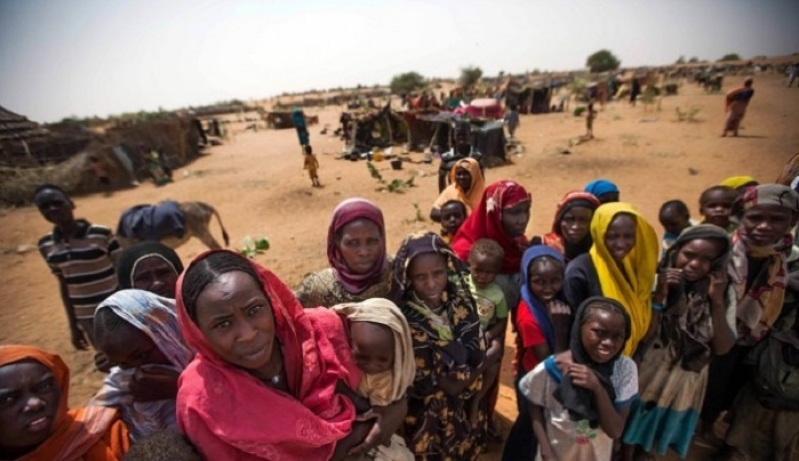
Horrific new details have emerged regarding the systematic beatings and rape of 221 girls carried out by Sudanese government forces in Darfur last year.
Yesterday, the Human Rights Watch released a 48-page report, detailing how Sudanese army troops went from house to house in the North Darfur town of Tabit last October and raped over 221 civilian girls and women in just a 36-hour timespan.
"The attacks included the mass rape of women and girls and the arbitrary detention, beating and ill-treatment of scores of people," The report stated. "The government of Sudan has denied that any crimes occurred and has prevented the African Union-United Nations Hybrid Operation in Darfur from carrying out a credible investigation of the incident."
According to the report, the officers carried out different "military operations" in the town over the 36-hour period, beginning on the evening of Oct. 30 and continuing until Nov. 1, 2014.
"Witnesses told Human Rights Watch that during each of these attacks, government soldiers went house-to-house in Tabit, searching houses, looting property, severely beating residents, and raping women and girls," The report explains. "On the two nights, soldiers forced many of the men to outdoor locations on the outskirts of the town, leaving the women and children especially vulnerable. The soldiers detained the men en masse, and threatened and physically abused them throughout the night."
Some of the survivors of the attacks revealed gruesome details of the horrors they experienced.
"They did it one by one. One helped beat and the other raped. Then they would go to the next girl," Khatera, a 40 year old mother-of-three recalled.
A survivor named Nadia remembered how her house was bombarded with soldiers who threw the family's men out of the house and the beat and raped the family's women inside.
"Eighteen soldiers came into our house. Three took men out. They beat the men with the back of their guns. Then they dragged the men out of the house," Nadia explained. "Then the 15 [remaining soldiers] raped us, all four of us. They beat us and they did whatever they wanted."
Another victim by the name of Umm-Jumma described her attack: "When they saw that I wanted to fight they threatened me with their gun. Then they raped me. There were four of them. Two had civilian clothes. [They raped me] in front of my mother. She was screaming."
While the motive behind the mass rape attack remains unclear, one soldier who defected told HRW that the troops ordered to punish rebel soldiers in the town because the Sudanese government had received information about a possible rebel attack against its army base just outside of the town. According to two other soldiers involved in the attacks, their superior commanders ordered them to "rape women" because they were considered "rebel supporters."
The report also highlights how top government officials and military commanders did everything in their power to keep the residents of Tabit silent regarding the incident. Thus, when a Sudanese government-appointed special prosecutor visited the town on Nov. 20, residents were too afraid to speak out against the atrocities and the prosecutor ruled that no crime had been committed.
"They have threatened, intimidated, beaten, detained, and tortured residents of Tabit to prevent them from speaking out about what took place," the report explains. "Most of the rape victims interviewed by Human Rights Watch said they were unable or unwilling to be treated at Tabit's limited medical facilities because they feared arrest and further physical abuse by government officials."
Human Rights Watch Africa Director Daniel Bekele has criticized the Sudanese government for preventing the international community from investigating the incident and denying it ever occurred, calling it a "new low" for the catalog of atrocities in Darfur.
"The Sudanese government should stop the denials and immediately give peacekeepers and international investigators access to Tabit," he said. "Sudan has done everything possible to cover up the horrific crimes committed by its soldiers in Tabit but the survivors have fearlessly chose to speak out. The UN Security Council and the AU should demand that Sudan stop these attacks, urgently act to protect Tabit residents and conduct a credible investigation."
He added, "The deliberate attack on Tabit and the mass rape of the town's women and girls is a new low in the catalog of atrocities in Darfur."







